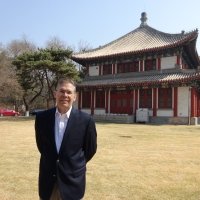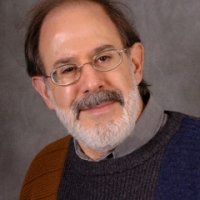Russian Society and Foreign Policy: Mass and Elite Orientations after Crimea
Most Russians agree with the official narrative that Russia has re-emerged as a great power under Vladimir Putin, particularly with the annexation of Crimea. However, many Russians are unwilling to bear the economic burden of escalating tensions with the West, evidenced by the declining “Crimea bump” in Putin’s popularity and growing dissatisfaction with a stagnating or falling standard of living. Drawing extensively on public opinion polls, surveys of elites, and focus groups in Russia, Professor Thomas Sherlock discussed why a majority of Russians are likely to believe that the Kremlin should not pursue costly policies of militarization and external confrontation, but rather focus on pressing domestic problems.
Selected Quotes
Thomas Sherlock
“The Crimea effect has deteriorated year by year, until – this year – you could say it has finally extinguished itself […] One of the reasons for its decline is not simply that time has had its inevitable cost to maintaining a narrative, a mythic narrative, but also initial conditions of distance between State and society in the Post-Soviet era was finally coming to fruition. Much of the Russian population had – as a result – greater perceptual autonomy and therefore ability to evaluate their external and internal environment.”
Harley Balzer
“Russians may still watch the official news, but at least half of them no longer take it seriously. We are back to something much more like the Soviet era – you get your news from your friend, from other sources. You watch state news to see what the government is saying, you learn something from it, but you don’t necessarily believe it.”
“The pension reform in 2018 was really a watershed. That’s where this break comes where people begin to connect this adventurous foreign policy, in Ukraine and in Syria, with economic difficulties in the country.”
Speakers

Professor, Political Science, United States Military Academy, West Point

Professor Emeritus, Georgetown University
Hosted By

Kennan Institute
After more than 50 years as a vital part of the Wilson Center legacy, the Kennan Institute has become an independent think tank. You can find the current website for the Kennan Institute at kennaninstitute.org. Please look for future announcements about partnership activities between the Wilson Center and the Kennan Institute at Wilson Center Press Room. The Kennan Institute is the premier US center for advanced research on Eurasia and the oldest and largest regional program at the Woodrow Wilson International Center for Scholars. The Kennan Institute is committed to improving American understanding of Russia, Ukraine, Central Asia, the South Caucasus, and the surrounding region through research and exchange. Read more
